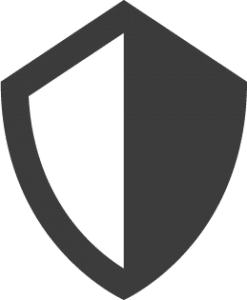Type of response:





Cameroon is one of the world’s most forgotten crises. Humanitarian needs in Cameroon have never been greater. Today, 4.3 million people need humanitarian assistance in eight of the ten Cameroonian regions.
Since 2016, Cameroon’s NW/SW regions have experienced social instability and unrest following protests against the treatment of the Anglophone population and the government’s response to these protests. The security situation in these regions remains volatile with frequent roadblocks, confrontations between non-state armed groups (NSAGs) and the state military, “ghost town” days, indiscriminate killing of civilians, and looting and destruction of property allegedly perpetuated by both the state military and NSAGs.
As a consequence, nearly half a million people have been displaced (representing one of the fastest-growing displacement crises in Africa), civilians and basic facilities have been repeatedly targeted, and the education system, health facilities and agricultural production have deteriorated.
Continuous fighting and the breakdown of basic services in the predominantly English-speaking regions has sparked the displacement of around 500,000 people in NW, SW, West and Littoral regions, and within the regions from the bush to the larger towns, as well as 35,000 people to Nigeria. Hundreds of villages have been set on fire, hospitals attacked, health workers attacked and schools closed. Over 780,000 children are no longer able to attend school and thousands of people are hiding in the bushes without humanitarian assistance.
Civilians are caught in the crossfire of fighting between government forces and NSAGs. Reports of disproportionate use of force have only increased. About 1,850 civilians have lost their lives as a result of the crisis in the past 20 months, although exact numbers are unclear given access.
Humanitarians are unable to reach many people in need in the SW and NW, and the population’s access to health, education, water and sanitation, shelter and protection are severely limited, and women are disproportionately affected. Insecurity and restrictions on movement have made access to farmlands and markets a challenge, leading to three million people facing food insecurity.
Tensions exist between internally displaced persons and the host community for access to drinking water, farmlands and social services such as health. Recent assessments show that women and girls experience rape, sexual assault, intimate partner violence, denial of resource/opportunities, psychological abuse, physical violence and early marriage. Many have expressed an increase in security concerns affecting women and girls and a noticeable increase of reported rape cases since the start of the crisis.
The programme will target a total of 49,585 beneficiaries in the divisions of Meme, Fako, Ndian (South West Region) and the divisions of Mezam, Momo and Boyo (North West Region). About 50% of the beneficiaries will be targeted in South West Region, 50% in North West Region.
In line with government and UN OCHA priorities, members will focus in priority sectors across the two regions, with different activities in each location, depending on needs, member and local partner expertise as well as alignment & complementarity with other programming and funding.
Protection: The Cameroon Joint Response will work to prevent and reduce protection risks for crisis-affected IDPs and host community members, provide individual protection assistance and referrals; providing emergency assistance to persons of special needs. The Joint Response will improve access to GBV prevention activities and provide access to medical and psychosocial services for survivors of sexual assault. Furthermore, the Joint Response will give specific attention to establishing and strengthening community-based child protection mechanisms and building the skills of the adolescents themselves, as well as the parents, caregivers and other community members.
Health: The Joint Response will increase access to Sexual and Reproductive Health (SRH) services according the Minimum Initial Service Package by building up the resources, capacity and the referral networks of local health providers. This will focus on the most critical SRH in Emergencies needs, with a focus on safe deliveries, family planning and medical management of rape, distribution of dignity and mother kits to vulnerable women and adolescent girls; and provision of medical equipment and supply.
WASH: The Joint Response will work to reduce water related diseases amongst crisis-affected persons through the rehabilitation of water sources, each with a water management committee to promote ownership and sustainability. JR will construct emergency showers and latrines to curb open defecation; recruit and train Community Hygiene Workers; distribute water storage containers and soap to most vulnerable households. People will participate in awareness raising activities in Child Friendly Spaces where WASH facilities will be rehabilitated.
Food Security & Livelihoods: The Joint Response will assist most vulnerable IDPs and host community households in Meme, Fako and Ndian divisions in the SW to meet their basic food and nutritional needs by providing monthly unconditional food vouchers for 3 months. Each household will be provided with a monthly food voucher which will cover about 60% of the minimum expenditure food basket of a Household.
Photocredits: Eddy van Wessel
Save the Children
Laan van Nieuw Oost-Indië 131-k
2593 BM Den Haag
The Netherlands
Chair organisation: Plan International
E: office@dutchrelief.org